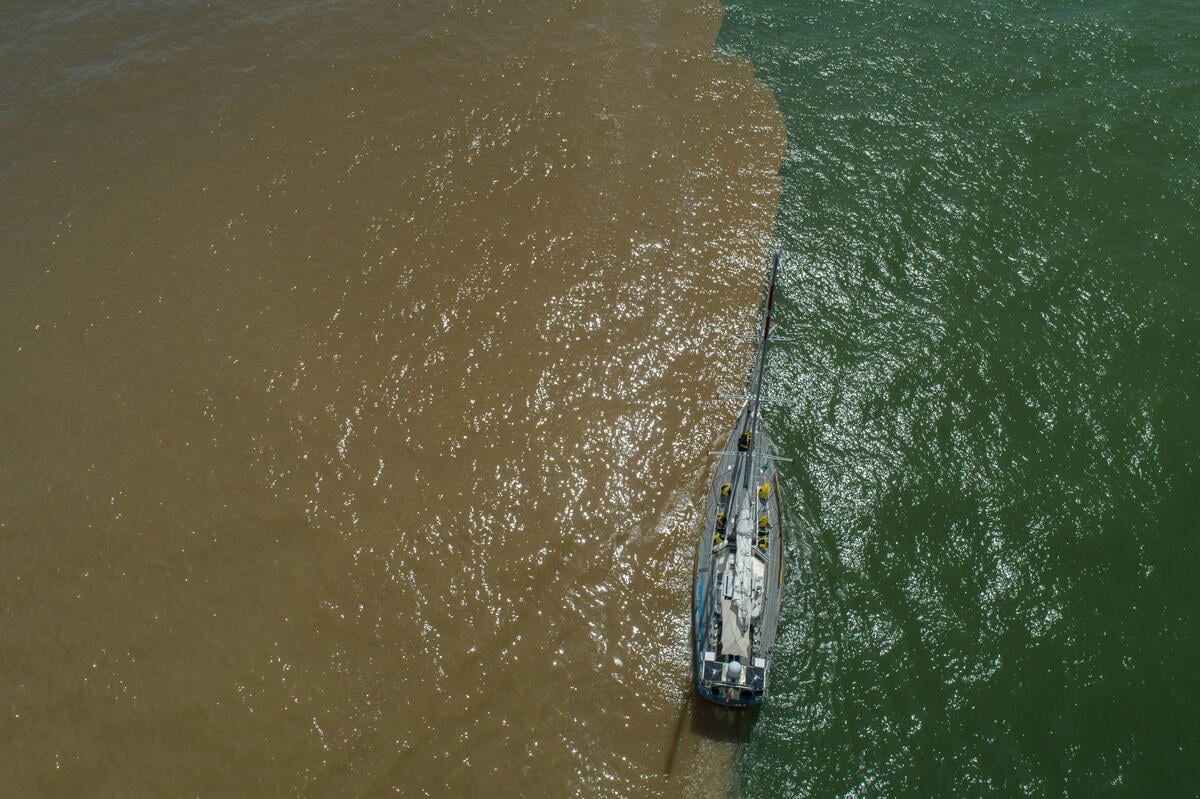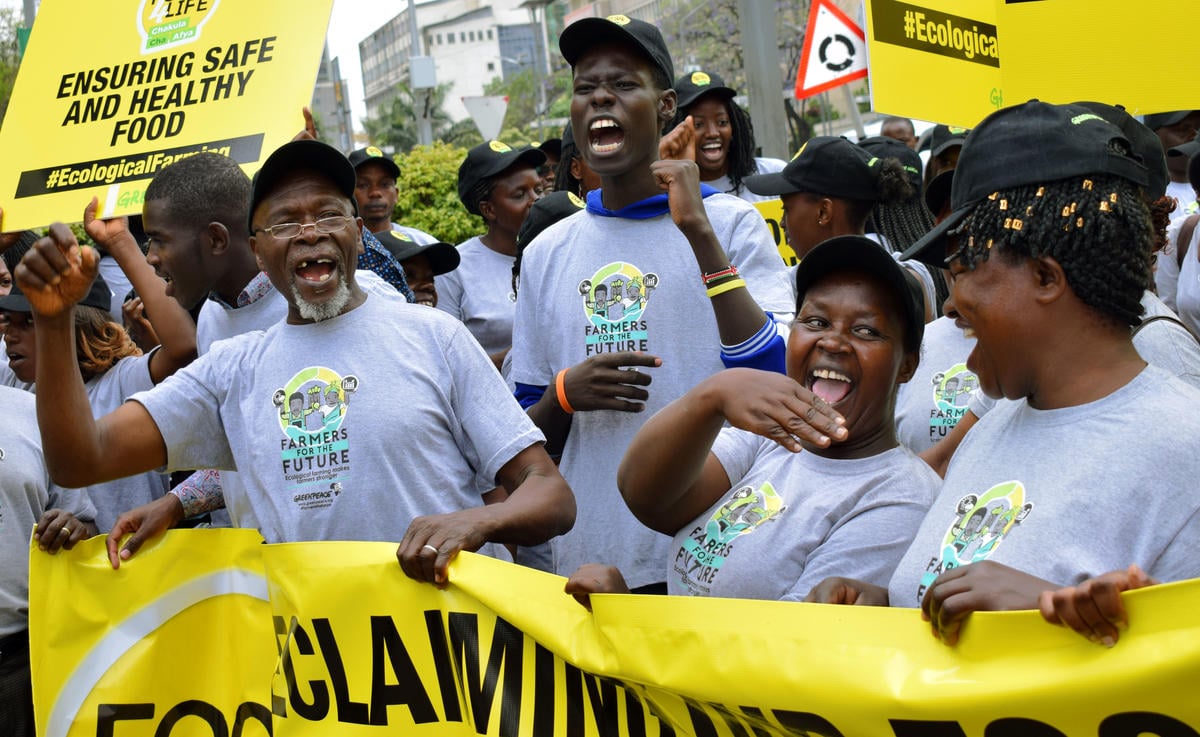Carbon offsetting is truly a scammer’s dream scheme.
It’s a bookkeeping trick intended to obscure climate wrecking-emissions. It’s tree planting window dressing aimed at distracting from ecosystem destruction.
It is the next big thing in greenwashing — and we must not be fooled.
The climate crisis is real, and we all need real solutions
Meanwhile, the fraud of carbon offsetting is built upon many of the hallmarks of a classic con:
- Greed drives it — Big Oil and corporate polluters want to keep putting profits over people and the planet.
- It feigns compassion — The same climate villains want to publicly appear to be taking climate action to help their image. It’s total greenwashing.
- It preys on fear — With climate impacts already increasing worldwide, we are all afraid of experiencing the worst-case climate scenarios.
- It takes advantage of uncertainty — Climate denial and misinformation bankrolled by Big Oil has intentionally fostered unnecessary and counterproductive confusion despite the science being clear that we urgently need to drastically reduce carbon emissions in order to stay on track for the Paris Agreement 1.5°C warming limit.
We need real solutions, we need to get emissions down to real zero without being distracted or derailed by offsets and so-called “net zero.”
To set the record straight, let’s break down why carbon offsetting is a false solution to the climate crisis and how it is used for greenwashing by those who want to keep polluting and profiting.
What is offsetting?
Carbon offsetting is a licence to keep polluting, and distracts us all from the real work of cutting emissions. It is where companies and governments try to meet their carbon reduction targets while still emitting carbon.
Here’s how it works: Let’s say you run a coal-fired power station. The coal you burn and the CO2 you emit goes into the atmosphere and heats our world. That is incontrovertible. But offsetting then encourages you to point at a forest and say, “I’m paying for those trees not to be burned so now we’re even.” Of course, this does nothing whatsoever to change the fact that the CO2 from your coal plant is now warming the atmosphere — it just lets you show a balance on paper.
Uncover polluters’ offsetting scams
Offsets emit injustice
There is a reason that Indigenous Environmental Network and Indigenous Climate Action held a protest against offsetting at COP26, the UN’s annual climate conference: Offsetting incentivises the commodification of nature and allows powerful corporations to take over the lands of vulnerable communities, risking human rights abuses. Offset schemes often exclude local and Indigenous Peoples from land management practises that allow them to grow food and preserve biodiversity.
Carbon offsets put a price on nature. We cannot allow the richest nations and corporations to commodify nature, and buy off lands in poorer countries for offsets, so they can keep polluting the atmosphere. Nature-based offsetting projects distort economies and take land and resources away from the local communities that need it most. Nature should remain off limits to corporate control for climate offsets.
Offsets distract us from the climate actions we need
Sure, we know that offsetting is bad for people and for the planet. But, it gets worse actually.
On top of the damage it enables, offsetting also distracts us from needed climate action. It gives the false impression that there’s a way out of the crisis without every government and business cutting their own emissions which leads to delaying or dampening ambition to do the real work.
We can’t afford that. We’re already way behind where we need to be.
Say NO to offsets and ‘Net Zero’
You’ve probably heard some company or organization throw out a Net Zero emissions pledge. These are the other side of the counterfeit offsetting coin. Basically, Net Zero is what you “achieve” by pretending that you can balance out continued emissions from burning coal by protecting a forest or planting trees.
Net Zero pledges also assume that there are no limits to compensate one’s own emissions with reductions or increased carbon removal elsewhere. They ignore the fact that plants need time to grow, whilst cutting fossil fuel emissions has immediate results. They assume that adding up all Net Zero pledges would get us to the 2050 vision of globally not emitting more carbon than can be reabsorbed. But it won’t.
Net Zero is good enough for greenwashing but not what the planet needs.
Instead of Net Zero, Greenpeace wants governments to be aiming for ‘Real Zero’ emissions.
Uncover the greenwash scams of the global oil industry
The meat industry’s greenwashing scam has dangerous consequences
This is all clearly bad. Why does anyone want this?
Offsetting and the Net Zero approach are popular because they allow carbon emitters to keep on emitting while masquerading as green. They can also be cheaper than paying fines for missing emissions reduction targets. Voluntary ‘carbon credits’ from schemes investing in forest protection or restoration can be bought for less than $10/tCO2. For example, when a European power plant fails to comply with its mandatory emissions reductions targets, it needs to pay more than 5 times.
Wait, so why are they talking about offsets at COP26?
Unfortunately, offsets and carbon markets landed on the agenda for COP26. These discussions threaten to swamp the negotiations, leaving little room for more urgent agreements on climate finance and commitments to phase out fossil fuels.
Those who want to pretend that offsetting isn’t a scam point to Article 6 of 2015’s Paris Agreement for justification. Article 6 is only nine paragraphs long but conflicting interpretations threaten to open the door for climate distractions instead of climate actions.
Greenpeace interprets Article 6 as promoting cooperation between countries to slash emissions. But most countries and industries say Article 6 should give a green light to the creation of a global market in carbon offsets. That would be bad.
Offsetting is a dangerous scam, it doesn’t work and expanding it will just delay real action.



